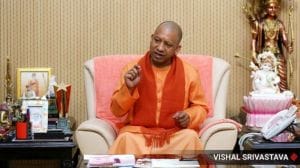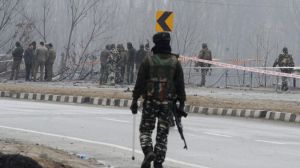Alliance of diverse minds
It’s India’s “silent condition”. Condition, not illness — what can be called being learning disabled. Teachers know...

It’s India’s “silent condition”. Condition, not illness — what can be called being learning disabled. Teachers know it exists among 15 to 20 per cent of their students, parents know it affects their children’s sense of self-worth because those who suffer from this condition are often marked for life with labels of being “stupid,” “lazy” or, worse still, “dumb”. But nobody much wants to discuss this in any sustained manner, perhaps out of shame or more likely out of ignorance about how to address the situation effectively. It scarcely figures in our national discourse on education.
Children who are learning disabled could be actually quite smart. Need evidence? Here are some people who were learning disabled and yet managed to do quite well in adulthood: Albert Einstein, Winston Churchill and, more contemporaneously, Richard Branson. Include in this list our very own luminaries, Mahatma Gandhi, J. Krishnamurthi, R.K. Laxman and Gulzar.
Students with learning disabilities often do not succeed academically because of the “one size fits all” approach to teaching that we’ve adopted in India. Moreover, there’s an absence of expertise and teacher training in the learning sciences; there are very few programmes aimed at assisting teachers to meet the specific learning needs of students.
Children with learning disabilities present a range of issues from severe breakdowns in learning to daily academic frustrations. Many have minds that are specialised to perform certain tasks. A student may have difficulty verbalising his thoughts but may be brilliant at visualising. Some can recall information and skills rapidly but have difficulty with comprehension. Some students may reveal a brilliant understanding of people and be hopeless in sequential directions (multi-step directions, or chains of events in history). Learning disabilities encompass a broad range of neurological problems that are distinct from retardation and emotional disturbances. Children with learning disabilities are intelligent, often gifted, but unable to achieve academic success in regular classrooms.
What are we really doing to identify their condition and help them and their teachers? Teachers who use the “one-size-fits-all” approach to organising learning opportunities in the classroom create a dysfunctional learning environment in which some children become disabled due to their learning differences. The key is understanding and applying the term learning differences rather than learning disabilities. We need to reach out, and not penalise diverse minds. Too many children struggle needlessly because the way in which they learn is not compatible with the way they’re being taught. Schools are filled with kids who have given up on themselves and conclude that they are “stupid”. It’s tragic, it’s painful for everybody, and it’s depriving our nation of important contributions that learning-disabled children can make when they grow up. There are millions upon millions of school-going children in India. To ignore the 20 per cent among them who may have learning disabilities is simply irresponsible.
Addressing the needs of children with differences in learning requires the collaboration of parents, educators and clinicians. If parents, teachers and other professionals discover a child’s learning disability early and provide the right kind of help, it can give the child a chance to develop skills needed to lead a successful and productive life.
Parents are often the first to notice, “something isn’t right”. Supportive and tenacious adults are critical to the success of a child with a learning disability. So parents need to become clever tacticians. They must forge a partnership with teachers and be their child’s advocate. They must observe their child’s passion and play to his strengths.
Schools must make a commitment to high standards and to individuality. Our educational institutions need to invest in teacher training. Teachers are the primary detectors of student strengths and weaknesses. They can screen their students, provided they know what to look for. Professional training is of utmost importance to help teachers stay abreast of their content and deepen their understanding in the science of learning.
Many trained professionals too can help a child with learning disability. These include educational consultants and therapists; learning disability specialists; neurologists; occupational therapist; pediatricians; psychiatrists and psychologists who specialise in education; and speech and language therapists.
The question of learning disabilities should no longer be India’s “silent condition”. Let’s get it into our public discourse.
The writer is the founder of Learning Matters, a nonprofit institution dedicated to addressing issues related to learning disabilities
Photos





- 01
- 02
- 03
- 04
- 05


























